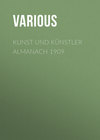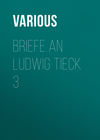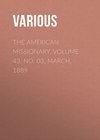Buch lesen: «Mrs. Whittelsey's Magazine for Mothers and Daughters», Seite 16
FAULT FINDING—THE ANTIDOTE
(Continued from page 162.)
At length it was time to choose his path in life, and being inclined to mercantile pursuits, his father placed him in the store of one of their friends, where he would have every facility for acquiring a thorough knowledge of business. Oh, how carefully did his mother watch the effect of a closer contact with the world, and a more prolonged absence from her hallowed influence—and how gratefully did she perceive that her precious boy still came to her with the confiding love of his childhood, in all the temptations of his business life, and that her influence was still potent with him for good.
"Mother, I was terribly urged to go to the theater last week," said he in one of his frequent visits at home. "Harvey and Brown were going, and they are pretty steady fellows, and I really was half inclined to go."
"Well, what saved you?"
"Oh, I knew just how you would look, mother, dear, and I would rather never see a theater than face that grieved look of yours. Mother, the thought of you has saved me from many, many temptations to do wrong, and if I am good for anything, when I am a man, I must thank God for my mother."
"Thank God for his preserving grace, my dearest Charley, and ask him to give you more and more of it."
Not many days after, Mrs. Arnold was in company with her son's employer. "Your son promises well, Mrs. Arnold," said he, "he is very accurate, obliging, respectful. I am somewhat hasty at times, and a few days since blamed him severely for something which I thought he had done wrong. He showed no ill-temper, but received it with so much meekness, my heart smote me. The next day he asked me very respectfully if I would inquire of one of the clerks about it, which I did, and found he had done nothing blameworthy in the least. He is a fine boy, madam, a very fine boy, and I hope will make as good a man as his father."
But a good man Charley was not destined to be. Her reward was nearer than she had thought, and he who had learned of the lowly Saviour to be meek and lowly of heart, was soon to be transplanted to dwell with loving and holy ones above. One day he returned home unexpectedly, and the first glance told his mother he was in trouble. "Mother, I feel really sick. I was sick yesterday, but I kept in the store; but to-day I could only go down and see Mr. Barker, and tell him I must come home for a day or two. Oh, mother it is a comfort to see your dear kind face again," said he, as she felt his pulse, examined his tongue, and inquired how he felt, "and perhaps if I can rest quietly an hour or two this dreadful pain in my head will be relieved."
He went to his pleasant chamber, to his quiet bed, the physician was summoned, and all that skill and the tenderest care could do was done, but he rapidly drew near the grave. He was patient, gentle, grateful, beautiful upon that bed of death, and while his mother's soul was poured forth in earnest prayer, for his continued life, her heart swelled with grateful thanksgiving for the sweet evidence he gave of a subdued and Christian spirit, and she could say with true and cheerful submission, "Not my will but Thine be done, whether for life or death, for it is well with the child."
Just at twilight one evening, he awoke from a short slumber, and his eye sought his mother at his bedside. She leaned over him and softly pressed her lips to his forehead. "Mother," he said, faintly, "the Doctor has given up all hope of my life, has he not?" Nerving herself to calmness for his sake, she answered, "He thinks you very sick, Charley, but I cannot give up all hope. How can I part with you, my beloved?"
"Mother," said he, as he took her hand in both his, and laid it on his breast, "I want, while I am able, to tell you how I feel, and I want you to know what you have done for me. I was a passionate, bad tempered boy, and you know father—" He stopped. "Mother, I should have been a ruined boy but for you. I see it all now plainly. You have saved me, mother. You have saved my soul. You have been my guide and comfort in life. You have taught me to meet even death and fear no evil, for you have shown me my sin, and taught me to repent of it, and love and trust the precious Saviour, who died that His blood might cleanse even my guilt. I feel that I can lie in His arms, sure that He has forgiven my sin and washed my sinful soul white in His blood. How often you have told me He would do it if I asked Him, and I have asked Him constantly, and He will do it, He will not cast me off. Mother, when you think of me, be comforted, for you have led me to my Saviour, and I rejoice to go and be with Him forever."
The next sun arose on the cold remains of what was so lately the active and happy Charles Arnold, and there was bitter grief in that dwelling, for very dear had the kind and loving brother been to them. The father was stunned—thunderstruck. Little had he expected such a grief as this, and he seemed utterly unable to endure it, or to believe it. How much he communed with his own heart of his neglected duty to that departed boy, we know not, but dreadful was the anguish he endured, and the mother had the joy to perceive that his manner afterward was far more tender to his remaining children, whom he seemed now for the first time to realize he might not always have with him, to be neglected and put aside, as a trouble and as a care, rather than as a precious gift, to be most carefully trained up for God.
But all wondered at the perfect calmness of that afflicted mother. So devoted—so saintlike—it would seem that she was in constant and sweet communing with the redeemed spirit of her boy. No regret, no repining escaped her lips, and many who knew how fondly she loved her children, and had feared that this sudden blow would almost overwhelm her, gazed with wonder at her perfect submission, her cheerful touching tenderness of voice and speech. And though tears would at times flow, yet she would say in the midst of them, "These are not tears of grief but of joy, that my darling son is safe, and holy, and blessed forever. Tears of gratitude to God for His goodness." And when hours of sadness, and of longing for her absent one came, as they will come to the bereaved at times, a faint voice seemed to whisper in her ear. "Mother, you have saved me, you have saved my soul!" And sweetest comfort came with that never to be forgotten whisper from the dying bed of her precious child, to sustain her in the darkest hour.
Fathers! Plead as you will, that you are full of care and labor to support your families. Say it over and over, till you really believe it yourself, if you please, that when you come home tired at night, you cannot be crazed with the clatter of children's tongues. You want to rest and be quiet. So you do, and so you should—but have you any right to be so perfectly worn out with business, that the voice of your own child is irksome to you? Try, for once, a little pleasant, quiet, instructive chat with him. Enter for a few moments into his feelings, and pursuits and thoughts—for that child has feelings, that need cherishing tenderly, for your own future comfort. He has pursuits, and you are the one to talk with him about them, and kindly tell him which are right and useful, and which he would do better to let alone. He has thoughts, and who shall direct that mind aright which must think forever, if not the author of his being? Ask of his school, and his playmates, and see if your own spirit is not rested and refreshed, and your heart warmed by this little effort to win the love and confidence, and delight the heart of this young immortal, who owes his entrance into this weary world to you, and whom you are under the most solemn obligations, to strive to prepare to act well his part in it. Do not say this is his mother's business. Has the Bible laid any command upon mothers? Would it not seem that He who formed her heart, knew that she needed not to be told to labor, in season and out of season, for her beloved offspring? But to you is the strong command, "Fathers, provoke not your children to wrath, but bring them up in the nurture and admonition of the Lord."
Mothers, do you not reap a rich reward for curbing your own spirits, for every self-denial, for untiring devotion to the immortals given to your care, with souls to be saved or lost? Oh! neglect them not, lest conscience utter the fearful whisper, "Mother, you might have saved that soul!"
Ellen Ellison.Feb. 1852.
Original
NEVER TEMPT ANOTHER
There are thousands of persons in the United States to whom the name of Jonathan Trumbull, formerly a governor of Connecticut, is familiar—I mean the first governor of that name. He was a friend and supporter of General Washington during the Revolutionary War, and greatly contributed by his judicious advice and prompt aid to achieve the Independence of America.
This Governor Trumbull had a son by the name of John, who became distinguished in the use of the pencil, and who left several paintings of great merit commemorative of scenes in the history of our revolutionary struggle. My story relates to an incident which occurred during the boyhood of John.
His father, for the purpose of giving employment to the Mohegan Indians, a tribe living within the bounds of the Connecticut colony, though at some distance from the governor's residence, hired several of their hunters to kill animals of various kinds for their furs. One of the most successful of these hunters was a sachem by the name of Zachary.
But Zachary was a drunkard, and persisted in his intemperate habits till he reached the age of fifty. By whose means I am unable to say, but at that time he was induced utterly to abandon the use of intoxicating drinks. His life was extended to eighty years, but he was never known after the above reformation, although often under powerful temptation, to taste in a single instance of the "accursed thing."
In his history of the Indians of Connecticut, De Forest has given us an account of the manful resistance of Zachary on one occasion of an artful temptation to violate his temperance principles, spread before him by John Trumbull, at his father's house. He says, "In those days the annual ceremony of election was a matter of more consequence than it is now; and the Indians, especially, used to come in considerable numbers to Hartford and New Haven to stare at the governor, and the soldiers, and the crowds of citizens, as they entered those cities, Jonathan Trumbull's house was about half-way between Mohegan and Hartford, and Zachary was in the habit of stopping, on his way to election, to dine with his old employer.
"John Trumbull, then about ten years old, had heard of the reformation of Zachary, and, partaking of the common contempt for the intemperate and worthless character of the Indians, did not entirely credit it. As the family were sitting around the dinner-table, he resolved to test the sincerity of the visitor's temperance.
"Sipping some home-brewed beer, which stood on the table, he said to the old man, 'Zachary, this beer is excellent; won't you taste it?' The knife and fork dropped from the Indian's hand; he leaned forward with a stern intensity of expression, his dark eyes, sparkling with indignation, were fixed on the young tempter: 'John,' said he, 'you don't know what you are doing. You are serving the devil, boy. Don't you know that I am an Indian? I tell you that I am; and if I should taste your beer, I could never stop until I got to rum, and become again the drunken, contemptible wretch your father once knew me. John, while you live, never again tempt any man to break a good resolution.'"
This was said in an earnest, solemn tone, and deeply affected Governor Trumbull and lady, who were at the table. John was justly awed, and deep was the impression made upon him. His parents often recurred to the incident, and charged their son never to forget it.
The advice of the sachem was indeed most valuable. "Never again tempt any man to break a good resolution." It were well if this precept were followed by all. How many who are reformed from evil habits, yet not firm and established, but who would persevere in their better resolutions were they encouraged, are suddenly, and to themselves surprisingly, set back by some tempter! What sorrow is engendered! and how difficult to regain what is thus lost! All this is essentially true of the young. Their good resolutions are assaulted; the counsels of a pious mother—the precepts of a kind father, and the determinations which a son may have formed in view of those counsels and those precepts, may be easily undermined and destroyed by the flattery or the ridicule, the reproach or the banter of some subtle or even of some thoughtless companion. To those who may read these pages, and who may at any time be tempted to seduce others from paths of virtue, or to break over solemn resolutions which they may have formed as to an upright and commendable course of life, let the injunction of old Zachary, the Mohegan sachem, not come in vain. "Never tempt any one to break a good resolution."
G.
Original
DESPONDENCY AND HOPE
AN ALLEGORY
BY MRS. J. NORTON
In a lone forest, dark and drear,
Stood wrapt in grief a maiden fair;
Her flowing locks were wet with dew,
Her life was sad, her friends were few.
A sparkling light gleam'd distant far,
Like twinkling faint of evening star;
Quickly it spread its brilliant ray,
Till forest drear looked bright and gay.
And on the wings of love and light,
A radiant figure, pure and white,
Approached and spake with accents mild:
"Why so despondent, sorrow's child?
"When thy lone feet the violet press,
Its perfume rises still to bless;
While groves and lawns, with landscape fair,
Are bathed in healthful mountain air."
"Ah, friend! thy path shines bright and clear;
Daily thou breath'st the mountain air;
But mine is in the barren wild,
Where naught looks bright to sorrow's child."
"Then take my arm, pale sister, dear,
With you I'll tread this forest drear;
When guided by this light from Heav'n,
Strength and peace will both be given."
They journeyed on through glade and fen,
'Till passing near a rocky glen,
Mild Patience came and sweetly smiled
Upon the path of sorrow's child.
The measured way still brighter grew,
'Till cares and griefs were faint and few.
Thus, Hope and Patience oft beguiled
The toil-worn path of sorrow's child.
Original
THE MOTHERS OF THE BIBLE
THE MOTHERS OF ISRAEL AT HOREB
There is no path of duty appointed for man to tread, concerning which the Almighty has not expressed his will in terms so plain that the sincere inquirer may always hear a voice behind him saying, "This is the way, walk ye in it;" nor are there any relations of life, nor any human affections which he has not constituted, and bestowed, nor any disappointment of those affections for which he has not manifested a sympathy so sincere, that the desolate and heart-stricken may always say, "Earth has no sorrow that heaven cannot heal."
Yet, it is something difficult for us to realize in our hours of darkness and despondency, that toward us personally and individually, the great heart of Infinite Love yearns with tenderness and pity. Even if we can say, "Though clouds and darkness are round about him, justice and judgment are the habitation of his throne," and can acquiesce meekly in all his dispensations, and believe sincerely that they will work for our good, yet we often fail of the blessedness which might be ours, if we could be equally assured that, "As a father pitieth his children, so doth the Lord pity them that fear him." This assurance only the faithful student of the Bible can feel, as the great truth gleams forth upon him from time to time, illuming "dark afflictions midnight gloom" with rays celestial, and furnishing balm for every wound, the balm of sympathy and love.
We often hear it said, by those who even profess themselves Christians, and devout lovers of the sacred oracles, "How can you read the book of Leviticus? What can you find in the dry details of the ceremonial law to detain you months in its study and call forth such expressions of interest?" Such will probably pass by this article when they find themselves invited again to Horeb. Turn back, friends. You are not the only ones who have excused themselves from a feast. And we—we will extend our invitation to others. On the by-ways and lanes they can be found; in every corner of this wide-spread earth are some for whom our table is prepared. We leave the prosperous, the gay, the happy, and speak to the desolate—the widowed.
Dearly beloved, you can look back to a day in your history over which no cloud lowered, when you wore the bridal wreath, and stood at the sacred altar, and laid your hand in a hand faithful and true, and pledged vows of love, and when hope smiled on all your future path; but who have lived to see all you then deemed most precious, laid beneath the clods of the valley, and have exchanged buds of orange for the most intensely sable of earthly weeds; you who once walked on your earthly journey in sweet companionship which brightened your days; who were wont to lay your weary head every night on the faithful "pillowing breast," and there forget your woes and cares, but who are now alone; you who trusted in manly counsel and guidance for your little ones, but who now shed bitter, unavailing tears in every emergency which reminds you that they are fatherless; and, worse than all, you who had all your wants supplied by the loving, toiling husband and father, but have now to contend single-handed with poverty,—come, sorrowing, widowed hearts, visit with us Horeb's holy mound. It is, indeed, a barren spot; nevertheless, it has blossoms of loveliness for you. Come in faith, and perchance the prophet's vision shall be yours—peradventure, the "still, small voice" which bade to rest the turmoil of his soul, shall soothe your griefs also; the words which are heard from its summit as Jehovah gives to Moses his directions, have indeed to do with "meats and drinks and divers washings," yet, if you listen intently, you will now and then hear those which, as the expression of your Heavenly Father's heart, will amply repay the toil of the ascent. Draw near and hearken:
"Ye shall not afflict any widow nor fatherless child. If thou afflict them in any wise, and they cry at all unto me, I will surely hear their cry, and my wrath shall wax hot, and I will kill you with the sword; and your wives shall be widows, your children fatherless."
Will you not now be comforted? "The Eternal makes your sorrows his own," and Himself stands forth as your protector against every ill.
"When thou cuttest down thy harvest in thy field, and hast forgotten the sheaf in the field, thou shalt not go again to fetch it, but it shall be for the stranger, and the fatherless, and the widow, that the Lord thy God may bless thee in all the works of thy hands."
If God's will is done, you see you will not suffer. He will raise you up friends, and those who obey Him, who wish to please Him, will always be ready to aid you for His sake. As shown to himself, he regards and will reward the kindness shown to you, and He has all hearts in his hands. But this is not all. A certain portion of every Israelite's possessions is to be given to furnish the table of the Lord, and, as if to assure you that He considers you His own, and will perform the part of husband and father for you at that table, and in his own house he provides for you ever a place. "In the tithes of wine, corn and oil, the firstlings of the herds and flocks, in all that is to be devoted to the service of the Lord, you have your share.
"At the end of three years thou shalt bring forth all the tithe of thine increase the same year and lay it up within the gates. And the Levite, because he hath no part nor inheritance with thee, and the stranger, and the fatherless, and the widow, which are within thy gates, shall come and eat and be satisfied, that the Lord thy God may bless thee in all the work of thine hand which thou doest."
Do you sorrowfully say that no such table is now spread? But He who thus provided still lives, and is the same as then. The silver and the gold are His, and the cattle upon a thousand hills, and he ruleth all things by the Word of His power. They that trust in him shall never be confounded.
"Thou shalt not pervert the judgment of the stranger, nor of the fatherless, nor take the widow's raiment to pledge. Why? Because they have no earthly friend to redeem the latter or plead for the former. Weak and unguarded, they are exposed to all these evils, but that He, the Eternal, takes them under his own especial care; and instead of compelling them to depend on the insecure tenure of man's compassion, or even justice, institutes laws for their benefit, the disobedience of which is sin against Himself."
Scattered through all the sacred volume are words which, equally with those we have quoted, speak forth Jehovah's interest in the helpless. "Leave thy fatherless children to me," he said, by his prophet Jeremiah, at a time when misery, desolation, and destruction were falling on Judea and her sons for their awful impiety. "Leave thy fatherless children, I will preserve them alive; and let thy widows trust in me." "A father of the fatherless, and a judge of the widows, is God in his holy habitation."
Oh, do we receive the full import of these soul-cheering words? Lone, solitary one! who hidest in thy heart a grief which, untasted, cannot be understood, there is a Being sitting on the circle of the heavens, who knows every pang thou endurest. He formed thee susceptible of the love which thou hast felt and enjoyed; Himself ordained the tie which bound thee. He, better than any other, comprehends thy loss. Dost thou doubt—study faithfully His word; obey his voice. Yield thy heart to Him and trust Him implicitly. He will prove himself able to bless thee in thine inmost soul. The avenues to that soul are all open to Him, and He can cause such gentle, soothing influences to flow in upon thee as shall make thee "Sing even as in the days of thy youth."
Fatherless child! whose heart fails thee when thou dost miss from every familiar place the guide of thy youth, faint not nor be discouraged, though the way is rough, and the voice that ever spoke tenderly to thee is silent. Thou hast a father in heaven; and He who calls himself such understands better than thou what is implied in that sacred name. Tell Him thy woes and wants.
"Thou art as much His care, as if beside
Nor man nor angel lived in heaven or earth."




















